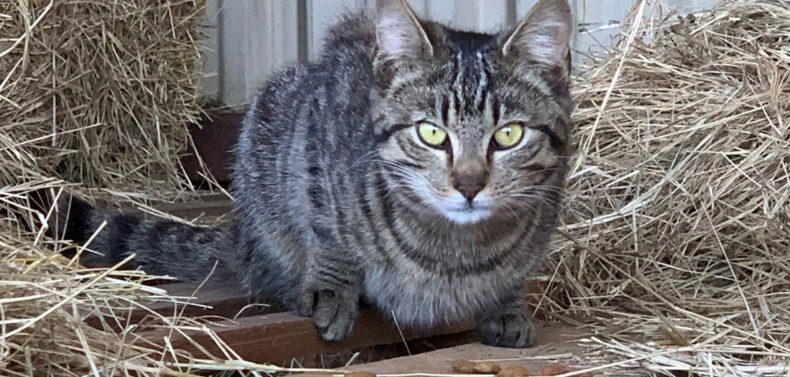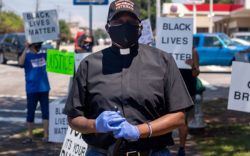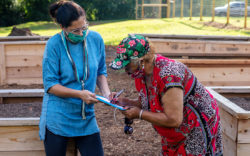Thousands of Athens dogs and cats relax in imperial luxury in their homes, where they can expect regular meals, warm places to sleep and lots of companionship from their humans. Other animals don’t have it so easy, and these otherwise domestic dogs and cats—many of which were abandoned by their owners and are unaccustomed to living in the wild—are homeless and hungry, living desperate and dangerous lives.
Nationally, the numbers are stunning. The Humane Society of the U.S. estimates that there are 70 million homeless cats and dogs, yet only about 10% of those animals enter animal shelters where many are adopted by loving families. The remaining homeless animals face multiple dangers, such as starvation and injury from cars or other animals.
Animal issues first attracted the public’s attention during the social reform era of the late 19th Century, prompting Henry Bergh, a wealthy New Yorker, to found the American Society for the Prevention of Cruelty to Animals. The organization initially focused its attention on horses, which were routinely beaten and abused, even in public, and coaxed lawmakers to pass laws prohibiting animal cruelty. Later, the American Humane Association was formed with a similar mission, but also took on child cruelty and child labor issues. Both organizations began pushing for anti-cruelty legislation, and over the years every state has passed felony anti-cruelty laws.
Over the next century, these national organizations gave rise to more than 3,500 animal shelters around the country, mostly formed by local governments seeking to manage the homeless animal population. The shelters hire animal control officers who look for instances of neglect, such as tethered dogs (an illegal practice in many communities, including Athens) and unleashed animals roaming free.
Locally, Athens Animal Services, a department of Athens-Clarke County government, sits at the center of a complex network of local and nearby shelters, and many private, non-profit animal rescue organizations cooperatively to move as many animals into adoptive homes as possible and reduce the need to euthanize them. Many animals are brought to the shelter as “owner surrenders,” often because of financial or housing issues. Animal Services officers will impound animals they receive complaints about, mainly roaming or neglected dogs. Occasionally, neighbors will trap cats that have homes, but the homeowner doesn’t want the animals roaming on their property. The shelter serves as an animal lost-and-found, since owners will phone the shelter first when missing an animal. Animal rescue groups such as the Humane Society are prohibited by law from accepting found animals for this reason.
Animal Services Director Kristall Barber says the officers field up to 2,000 calls per year, with roaming dogs as the most frequent complaint. Once animals enter the shelter, they are evaluated for health or behavioral issues and are checked for ID or microchips to find out if they have homes. Cats are tested for FIV and leukemia, and dogs for heartworms. They are then vaccinated. If an animal is microchipped, the staff will call the owner to let them know they have their cat or dog. If not, the shelter holds the animals for five days in the event their owners call, a process called “stray hold.” Most animals, including those held as stray holds are then photographed and their photos placed on the athenspets.net website. Some are featured in the Adopt Me section of Flagpole. Often animals, particularly dogs, will be reclaimed by their owners.
During this process, shelter staff will learn about the animal’s nature. Friendly, cute animals are placed in the respective adoption rooms, one for cats and the other for dogs, where they can be adopted by either residents, for a fee, or animal rescue groups, first-come, first-served. Adopters interested in meeting cats and dogs must first complete an adoption application and, during the COVID-19 pandemic, must then make an appointment to visit the animal.
Barber was recently hired by the county to take over the newly created Animal Services Department—previously it was a division of another department—and has initiated a series of improvements to the shelter, paid for with a significant increase in the budget. These changes reflect a heightened involvement from the county after numerous animal welfare experts complained in 2019 about unnecessary euthanasias and other issues.
Athenspets, a local animal welfare organization run by Lisa Milot, set up a website to publicize adoptable animals in 2001 and then became a 501c-3 in 2015. Thousands of animals posted on Athenspets have been adopted, rescued by an animal welfare group or reclaimed by their owners after people have seen them on Athenspets. The organization’s volunteers take pictures, write stories and publicize the animals on athenspets.net. Volunteers also closely monitor the well-being of animals at the shelter. Thanks to many improvements at the shelter over the last six months, Milot says Athenspets will begin shifting its mission to focus on animals in the community that need help.
Many adoptable animals are pulled by rescue groups such as Circle of Friends, Three Paws or Athens Canine Rescue, which are networks of foster homes. The Athens Area Humane Society has a private shelter, which will soon have a new home on Mitchell Bridge Road.
Sometimes, shelter staff may perceive that animals are frightened upon impound and give them a quiet space to see whether or not they will relax. The shelter also has a network of 50 foster homes that accept animals that have remained at the shelter for a long time or are not adapting well to shelter life.
Unadoptable cats with behavior problems face a different fate. In the past, cats with little tolerance for close exposure to humans were almost immediately euthanized. Linda Wistrom, an Athens animal welfare advocate who has partnered with the Campus Cat/Cat Zip Alliance, has developed a new “barn cat” program that slowly introduces these unsocialized but otherwise healthy cats into a farm setting, giving them a chance to become acclimated and learn that they will be fed regularly. Wistrom placed 338 cats in more than 100 barns in 2019, keeping these cats off “death row” and giving them productive work. Barn cat owners praise the cats for their zealous approach to their jobs and appreciate not having to use toxins to control rodent populations.
Campus Cats/CZA has a different approach to reducing animal euthanasia: TNR, or trap-neuter-return. An ACC law lobbied for by Campus Cats/CZA founder Kelly Bettinger allows volunteers to trap stray cats who may have been abandoned or are completely feral, and have them spayed or neutered. They are then returned, with their ears “tipped,” readily showing their neutered status, to the same place where they were trapped. Campus Cats has many volunteers who help feed the “community cats.” The group also trains individuals who want to trap feral cats they are caring for, and will lend out traps.
It takes a village…
Like what you just read? Support Flagpole by making a donation today. Every dollar you give helps fund our ongoing mission to provide Athens with quality, independent journalism.










